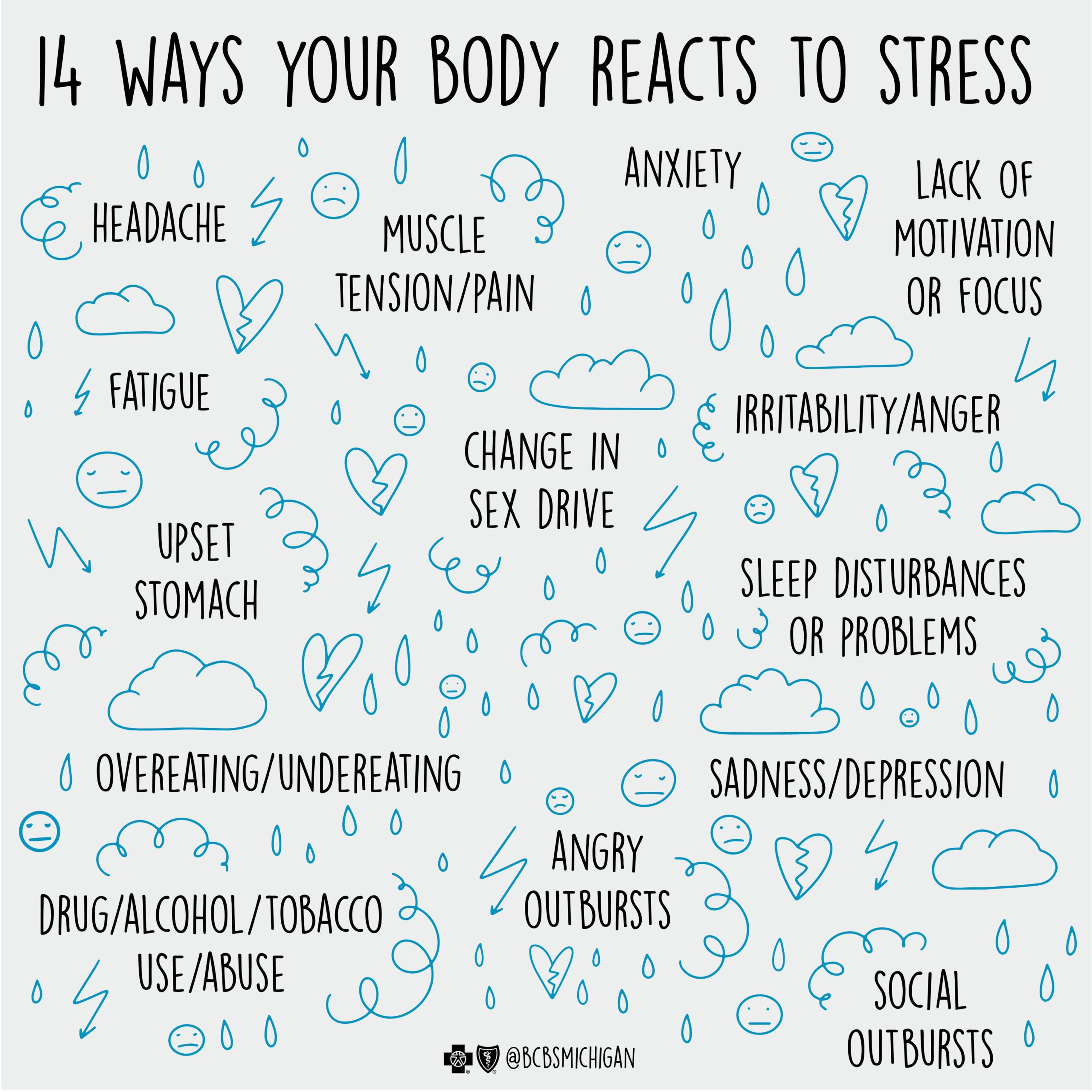14 Ways Your Body Reacts to Stress: How You Can Cope
| 3 min read

Many people have some amount of stress at their place of employment. Stress is natural – and in some cases – beneficial. However, most stress causes the body harm when it is not treated properly. In fact, people with high-stress jobs visit the doctor 30% more than those with lower stress jobs, due to the toll stress takes on the body.
Signs and Symptoms
Symptoms of stress to the body can go undetected because a lot of people think they are sick instead of identifying the real cause – stress. Here are some common factors to look for to see if your body is reacting to stress:
- Headache
- Muscle tension/pain
- Fatigue
- Change in sex drive
- Upset stomach
- Sleep disturbances/problems
- Anxiety
- Lack of motivation or focus
- Irritability/anger
- Sadness/depression
- Overeating/undereating
- Angry outbursts
- Drug/alcohol/tobacco use/abuse
- Social withdraw
If you are experiencing any of these symptoms, try to incorporate some stress management tools to decrease stress on your own. If the symptoms persist, contact your doctor.

Take a Walk
Research shows that taking a 10 minute break to walk during the day is good for increasing productivity at work. In fact, a recent study suggests the following:
- Taking a walk in nature gives the brain a chance to rest and “reset” itself
- Walking in a crowded or loud environment (busy street, city) doesn’t give the brain a chance to reset because of the stimulus that is going on and the brain still has to work to filter
- Taking a walk in nature opposed to the later, offers a 20% improvement in memory and attention when returning to work
- If you don’t have the opportunity to walk in nature during work hours, looking at pictures of nature at your desk also provides the brain a break, more than walking in the city
- Taking a walk is better than a caffeine break as well because caffeine can hurt the brain’s ability to concentrate and eventually more fatigued once it has worn off
- The study also suggests keeping working if you have a deadline that day because taking the break away from the work that needs to be done will cause more harm than good because you will worry about what you should be doing instead of enjoying the break
Taking a peaceful walk in nature provides a mental break and helps us reset for the rest of the day. All too often we are so busy and occupied we don’t take that little time for ourselves that our bodies desperately need. It is also a great way burn some extra calories – double bonus!
If you have time during your workday or if you need to take a stroll during the weekend, here are some great walking areas to check out:
Plan for Success
If the study statistics inspired you to incorporate a daily walk into your schedule, remember these tips to be successful:
- Mark a time in your calendar/planner/Blackberry that shows you will be unavailable during this time. Act as though it is a meeting that you can’t miss
- Get a walking buddy, not only will you be helping them with their mental reset, but they will hold you accountable to your walk
- Make a list of reasons why taking a mental break during the day is important to you. When you feel like you can’t get it in, read your list and chances are you will go
- Tell people about your new goal, chances are they will ask you about it, again, keeping you accountable
Looking for more health tips and information? A Healthier Michigan is ready to help:
Photo credit: Getty Images





